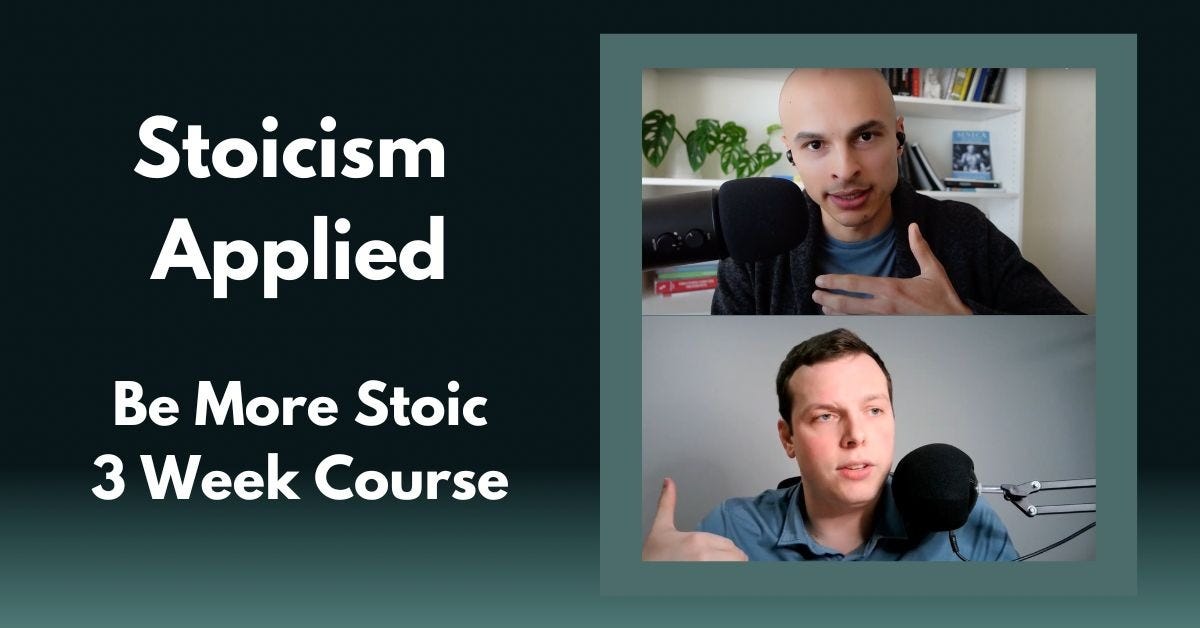Is Politeness Overrated?
Thinking with Stoic role ethics
Is Welcome to The Stoa Letter, the newsletter on Stoic theory and practice.
Every week we share two emails to help you build resilience and virtue with ancient philosophy. Each email includes one meditation on Stoic theory, one action to do in order to become more Stoic, and links to the best resources we’ve found.
And if you’re interested in Stoic Mindfulness, I’m running a free workshop on the topic this week! Register here.
🏛️ Theory
When we’re polite, we follow the rules of etiquette, are considerate, and avoid conflict.
Yet as everyone learns – people can have manners without having ethics.
Stoic role ethics may be useful here. The Stoics advocated for identifying and then performing well in our roles. They can be thought of in a fourfold hierarchy. First, we share the universal role of human beings. This means that we ought to act rationally and prosocially. Second, our social relationships, chosen and unchosen, determine who we are. Paraphrasing a line of Epictetus we can say:
We shouldn’t be unfeeling like statues, but should maintain our natural and acquired relationships toward Nature, parents, siblings, children, and fellow citizens.
Third, our individual talents and capacities shape our purpose in life. We're each fit with some roles, but not others. Finally, our preferences and choices come into the picture.
Sometimes our roles may clash. Social roles like host and employee push towards politeness. Yet those roles are not as deep as parent, sibling, or spouse. These may push for skillfully telling the truth and risking offense.
Respecting others and pursuing knowledge requires conflict. In the words of Alexandra Hudson:
While politeness smooths over differences with superficial good manners, true civility means recognizing the innate dignity of others—which sometimes means respecting people enough to tell them they’re wrong.
So much of life is finding the right amount. We should all heed the “Rule of Equal and Opposite Advice” – for every piece of advice, someone else needs to hear the exact opposite. Some people are too polite and refuse to acknowledge problems. They are not assertive enough. Meanwhile, others justify rudeness because “they are right.”
Stoic role ethics may help you find the right amount. Consider the roles you occupy and ask – what does being excellent look like here?
🎯 Action
Bring to mind one of your social roles and consider whether you’re practicing right amount of politeness.
🔗 Links
🎧️ Listen to my conversation with Alexandra Hudson on civility here:

Alexandra Hudson on the Soul of Civlity (Episode 84)
How the great books and classics challenge us to live well with others
stoameditation.com/blog/alexandra-hudson-on-the-soul-of-civlity-episode-84

📗 Read more about Stoic role ethics in How to Balance Our Short Lives

Stoicism Applied by Caleb Ontiveros and Michael Tremblay on Maven
Build resilience and virtue with ancient philosophy this October.
maven.com/stoa/stoicism-applied

What did you think about today's letter?
🏆️ Share The Stoa Letter
If you find what we’re doing useful, please share it. Just have people sign up with your link below.
Share The Stoa Letter
{{rp_personalized_text}}
Or copy and paste this link to others: {{rp_refer_url_no_params}}
Get hundreds of Stoic meditations and lessons with the Stoa app (free download)

